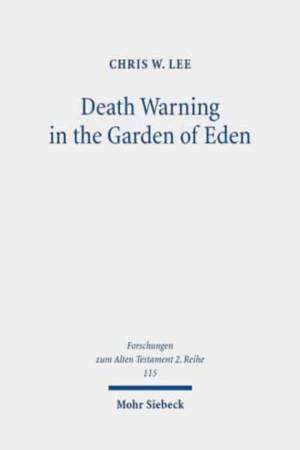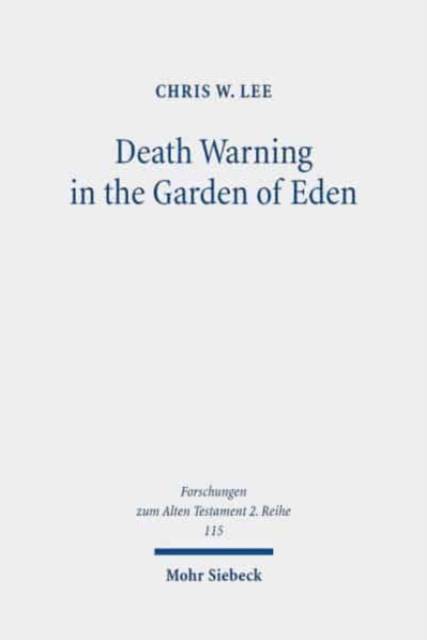
- Retrait gratuit dans votre magasin Club
- 7.000.000 titres dans notre catalogue
- Payer en toute sécurité
- Toujours un magasin près de chez vous
- Retrait gratuit dans votre magasin Club
- 7.000.0000 titres dans notre catalogue
- Payer en toute sécurité
- Toujours un magasin près de chez vous
189,95 €
+ 379 points
Description
In this book, Chris W. Lee examines the early Jewish reception of the divine death warning (Gen 2:16-17) in relation to its interpretative association with the introduction of physical death to humanity. The long-time rationale has been that the eating of the tree of the knowledge of good and evil brought sin and death 'for in the day that you eat of it, you shall surely die' (Gen 2:17). In this study, the author begins by examining the meaning of Gen 2:17 in its original context, then tracing its interpretation in subsequent Second Temple Jewish Literature. He examines the Greek translation of Gen 2:16-17 and its translational elements that expand the possible range of understanding of the death warning that would not have originated from the Hebrew text of Genesis. Chris W. Lee then continues with an exegetical analysis of allusions and references to the death warning in the Dead Sea Scrolls, the Book of Ben Sira, 1 Corinthians and Romans. He argues, firstly, that there are no explicit narrative clues in the HB as to the physical status of Adam and Eve either as immortal or mortal before their disobedience to God's command in Gen 2:17, and that the death warning itself does not provide textual support for the understanding of the death warning in the sense of becoming mortal. He also argues that Paul's explicit attribution of death to the disobedience of Adam and Eve (1 Cor 15:21-22; Rom 5:12) finds its earlier traces in the course of interpretation of the aforementioned literature: 1) clarification of the meaning of the death warning, i.e. death in the sense of becoming 'mortal' and death due to the violation of the command as applicable not only to Adam, but also to Eve and other human beings; 2) reinforcement of the presumptive association between the death warning and the introduction of death to humanity.
Spécifications
Parties prenantes
- Auteur(s) :
- Editeur:
Contenu
- Nombre de pages :
- 227
- Langue:
- Anglais
- Collection :
- Tome:
- n° 115
Caractéristiques
- EAN:
- 9783161588587
- Date de parution :
- 01-08-20
- Format:
- Livre broché
- Format numérique:
- Trade paperback (VS)
- Dimensions :
- 155 mm x 231 mm
- Poids :
- 576 g

Les avis
Nous publions uniquement les avis qui respectent les conditions requises. Consultez nos conditions pour les avis.






